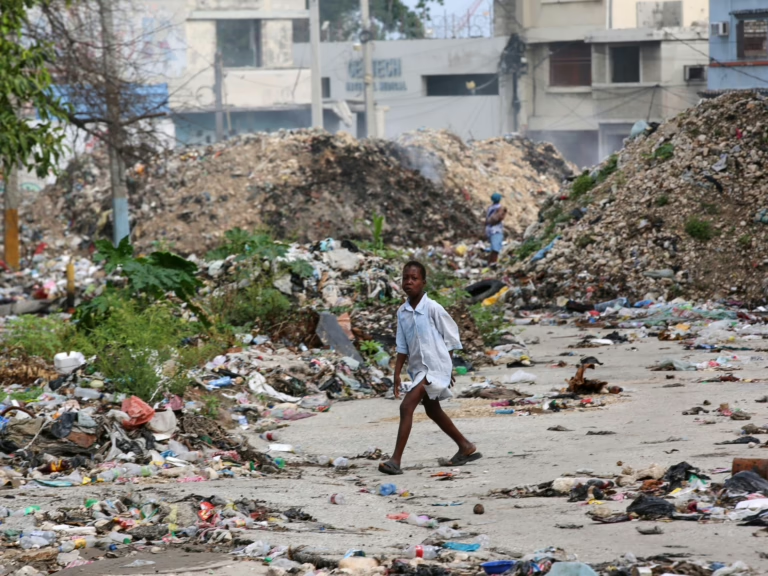By mid-2026, half of Haiti’s population is expected to endure severe food shortages as armed factions obstruct humanitarian aid.
Published On 11 Oct 2025
Haiti is grappling with an escalating hunger crisis, as over half of its population confronts life-threatening food insecurity amid intensifying control by armed groups and a deteriorating economic landscape.
According to a recent analysis by the Integrated Food Security Phase Classification (IPC), approximately 5.7 million Haitians out of an estimated 11 million are currently enduring critical food shortages. The situation is exacerbated by gang-related violence that displaces communities, disrupts farming activities, and blocks vital aid deliveries.
The report highlights that nearly 1.9 million individuals are in an emergency state of hunger, characterized by severe nutritional deficits and alarming malnutrition rates. An additional 3.8 million people are classified as facing crisis-level food insecurity.
Looking ahead, projections indicate that close to six million Haitians will suffer from acute hunger by mid-2026, coinciding with the country’s most challenging agricultural period.
In response, the Haitian government has unveiled plans to create a Food and Nutrition Security Office aimed at streamlining relief coordination. Louis Gerald Gilles, a member of the transitional presidential council, emphasized the urgency of mobilizing resources to assist the most vulnerable populations swiftly.
However, the implementation of aid efforts is severely hindered by the fact that armed factions now dominate roughly 90 percent of Port-au-Prince, the nation’s capital, and have recently extended their influence into key farming regions.
Displacement has surged, with 1.3 million people uprooted from their homes-a 24 percent rise since December-many of whom reside in overcrowded shelters lacking essential services.
Farmers who remain face coercion from gangs, often compelled to share portions of their harvests to maintain access to their land. The closure of small enterprises has further stripped families of income, and even when crops are harvested, transportation to urban markets like Port-au-Prince is frequently blocked by armed groups controlling major routes.
Economic hardships deepen the crisis, as Haiti endures its sixth consecutive year of recession. Food prices soared by 33 percent in July compared to the previous year, placing basic sustenance out of reach for many.
The impact on children is particularly dire. A separate study revealed that 680,000 children have been displaced due to violence-nearly twice the previous count-with over 1,000 schools shuttered and numerous minors forcibly recruited by armed factions.
In an effort to restore order, the United Nations recently authorized a new gang suppression force comprising 5,550 personnel, replacing a smaller, underfunded mission.
Despite these measures, instability persists. Just last Thursday, intense gunfire erupted during a government meeting at the National Palace in downtown Port-au-Prince, necessitating a rapid evacuation from an area long dominated by gangs.
Martine Villeneuve, Haiti director at Action Against Hunger, cautioned that while some progress has been achieved, sustainable improvements require long-term commitments to tackle the underlying causes of this humanitarian emergency.






















